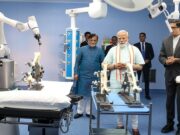
Automotive component maker Steelbird. (Photo: Steelbird)
As per the details shared by the brand via official release, it aims to sell 10 million helmets in fiscal year 2024-25, capturing more consumers in the country.
The leading automotive component maker Steelbird has been witnessing an overwhelming response for their helmet range in India. After distributing more than 8 million units globally, the company is all set to level its game in the business.
As per the details shared by the brand via official release, the company aims to sell 10 million helmets in fiscal year 2024-25, capturing more consumers in the country. To achieve the target, Steelbird is leaving no stone unturned, putting efforts to expand capacity at its existing plants in Baddi, Himachal Pradesh.
Future Plan
The company says it has procured additional land in Baddi to boost the operation further. It will dedicate a capital expenditure (capex) of Rs. 105 crores for the initiative. Once done, the production capacity at the facility will improve by 45,000 to 50,000 units per day.
New Manufacturing Facility
In addition, the brand is also gearing up to establish a new state-of-the-art manufacturing facility in southern India, potentially in Hosur. It has the company is in under process of boosting its portfolio, allowing customers to enjoy over 70 new range of helmet models soon. The upcoming series will hit the market with cutting-edge technology, making them Bluetooth-enabled with better airflow technology.
Here’s What MD Says
Reacting to the plan, the company’s MD highlighted that 300,000 individuals succumb to road accidents annually in India, with the actual figures likely surpassing due to underreporting in regions lacking adequate traffic enforcement. “Many states and districts in our country lack proper traffic enforcement, and numerous accidents remain unreported. If we cross-reference the data with insurance companies, the numbers are significantly higher. Hence, it is imperative for us to urgently address this issue, leaving no stone unturned,” Kapur added.











































